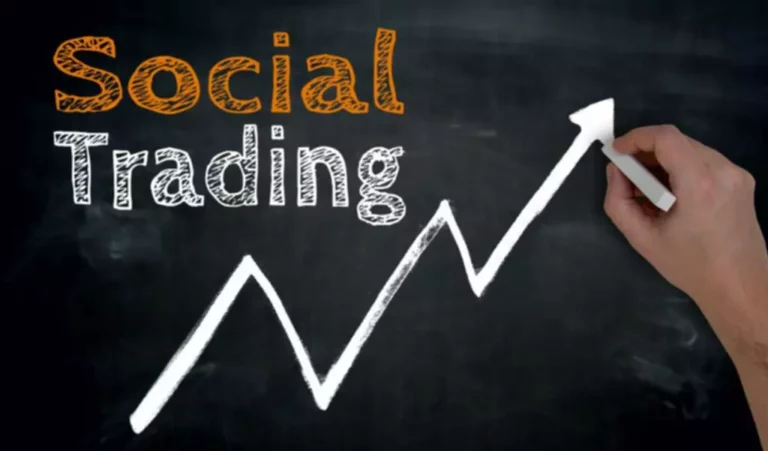Content
The hours may vary depending on the broker-dealer you trade with, so it’s important to check with them before you start trading. Robinhood does not allow OTC or Pink Sheet stock trades on its platform. However, Robinhood covers all the NYSE and Nasdaq stocks, circa 5,000 stocks. Within each tier, companies may be designated with additional tags to indicate their industry, location, or other attributes. For example, the OTCQB and OTCQX offer designations Mining pool for fully reporting cannabis companies and SEC regulated banks, respectively.
What Are the Risks of Over-The-Counter Markets?
Some companies in the OTC markets are well-established and have met financial and disclosure requirements, while others may be in financial distress or face defaulting on their financial obligations. Please research before investing in any company, whether listed on an exchange or in the OTC markets. Pink sheet stocks are less regulated and less liquid than other OTC stocks. They are not traded on an exchange; instead, they are traded over the counter through a system known as the “pink sheets.” The pink sheets are a list of OTC stocks published by what is otc OTC markets.

Do you already work with a financial advisor?
- Review recent filings, press releases, and financial statements on the OTC Markets website or the company’s investor relations page.
- Marijuana is federally legal in Canada, which means that Canadian marijuana businesses can publicly list on a central U.S. exchange.
- Investors should exercise caution, especially with thinly traded penny stocks, as there is greater potential for fraud and manipulation.
- We’ll also discuss some other key information you should know before you decide whether OTC stocks are right for you.
- The OTCQX is the premier marketplace for established, investor-focused U.S. and global companies.
- Of course, we’re still talking about companies with little to no regulation.
We’ll also discuss some other key information you should know before you decide whether OTC stocks are right for you. Finally, because https://www.xcritical.com/ of the highly speculative and higher risk backdrop of investing in OTC securities, it’s important to invest only an amount of money that you are comfortable losing. There are many questionable companies that trade on this market.
Examples of Trading in Over-the-Counter Markets
More than 12,000 stocks trade over the counter, and the companies that issue these stocks choose to trade this way for a variety of reasons. Penny stocks and other OTC securities are readily available for trading with many of the online brokerages, these trades may be subject to higher fees or some restrictions. The over-the-counter market refers to securities trading that takes place outside of the major exchanges.
In OTC markets, traders are significantly exposed to the risk of default by their counterparties. As there isn’t any centralised clearinghouse, traders must rely on the creditworthiness of their counterparties. But most of the volume movement happens during regular trading hours — 9.30 a.m.

Since regulations for OTC markets are less stringent than major exchanges, companies have more flexibility in areas like reporting requirements, share pricing, and corporate governance. For investors, this means fewer restrictions on trading and more opportunities to find value. However, the reduced oversight also means more volatility and uncertainty. The OTC, or over the counter, markets are a series of broker-dealer networks that facilitate the exchange of various types of financial securities. They differ in several key aspects from the stock exchanges that most investors and the broader public know of. The investing information provided on this page is for educational purposes only.
OTC markets, while regulated, generally have less strict listing requirements, making them attractive for companies seeking to access U.S. investors without the burden of SEC registration for an exchange listing. OTC markets trade a variety of securities that may not meet the listing criteria of major exchanges, including penny stocks, foreign securities, bonds, derivatives, and cryptocurrencies. The diversity of offerings attracts speculators but also demands thorough research. Exchange-listed stocks trade in the OTC market for a variety of reasons. Institutions and broker-dealers don’t necessarily want to publicize their trading strategies. If a large institution or brokerage firm attempted to make a block trade on an exchange, the market might react in such a way that pushes prices in a direction unfavorable to the institution or firm.
Over-the-counter, or OTC, markets are decentralized financial markets where two parties trade financial instruments using a broker-dealer. Among assets traded in the over-the-counter market are unlisted stocks. When a company is unlisted, it is public and can sell stocks, just not on a security exchange such as Nasdaq or the New York Stock Exchange. When it comes to equities trading, movements of share prices on major stock exchanges like the New York Stock Exchange and Nasdaq tend to dominate headlines. But every day, millions of equity trades are made off the stock exchanges in what’s known as over-the-counter (OTC) trading. Some specialized OTC brokers focus on specific markets or sectors, such as international OTC markets or penny stocks.
Keep in mind that these are only examples of these stocks and how they operate. FINRA also regulates the OTC Bulletin Board and OTC Link ATS. Those are systems through which broker-dealers post price and volume. Only broker-dealers qualified with FINRA are allowed to apply to quote securities. Once the volume fades — once the party’s over — you don’t want to be the one left with shares. Selling OTCs is like buying them, but you’re clicking “sell.” Again, it’s important to use a limit order here.
The decentralized nature of the OTC market and the limited number of participants compared to major exchanges can result in lower liquidity, making it more challenging to execute trades at desired prices. OTC stocks often belong to smaller companies that cannot meet exchange listing requirements. Bonds and other debt instruments, often issued by governments or corporations, are also traded over-the-counter.
The Nasdaq has dealers making the trades, called ‘market makers.’ There’s no real difference for traders who have to go through a broker for this too. It’s also known as the ‘Venture Market.’ It’s filled with smaller domestic and international companies that can’t qualify for the OTCQX. These companies are current in their reporting and sell shares for at least 1 cent.
There’s little transparency and big pricing swings are possible. And it can take some time to fill an order if your broker can’t find a trading partner. You should always look for stocks trading at a decent volume.
Since the COVID-19 pandemic started, stock market democratization has led to a boom in retail investors entering the market. Currently, in the U.S. market, retail investors account for nearly as much trading volume as mutual and hedge funds combined. The growth is causing a shift in the market, including a rise in OTC (over-the-counter) stock trading.
